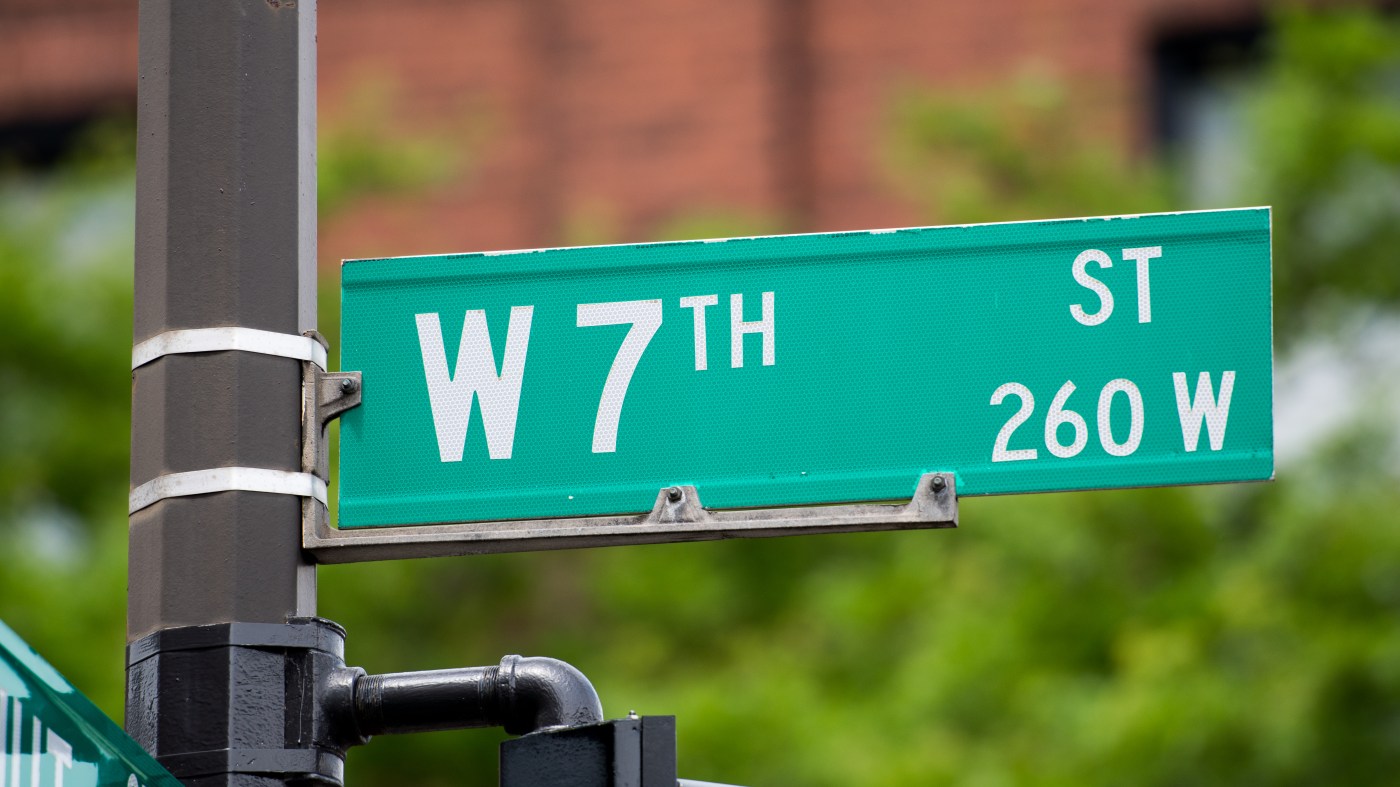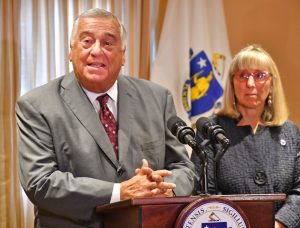
Neighbors oppose planned trash truck fueling station near St. Paul’s Randolph and West Seventh Street
When St. Paul Mayor Melvin Carter and other city officials presented FCC Environmental as the city’s new partner in trash collection last summer, they excitedly announced that the company was to build a new compressed natural gas station within the city limits. The $25 million facility would fuel the company’s fleet of some 30 trash hauling trucks custom-designed for the capital city’s century-old streets and narrow alleys.
It’s an important part of the city’s planned overhaul of organized trash collection next year, and of FCC Environmentals efforts to expand in the Midwest. The site that the company purchased in August — a tow lot at 560 Randolph Ave. — sits within an industrial corner just west of Shepard Road and the Mississippi River, about three blocks east of West Seventh Street.
Residents in the area are in the early stages of waging a protest campaign, noting that neighborhood development plans dating back to at least 2005 describe the five-acre parcel of land as a prime site for future riverfront housing near public transit, and a fleet of trash trucks could halt or hinder economic progress for blocks all around.
“This site should never have been an option,” said Meg Duhr, president of the West Seventh/Fort Road Federation, in an interview. “No one in the neighborhood is saying ‘This site is beautiful, it’s amazing, we want to keep it the way it is.’ But this will certainly stunt the potential. No one is going to build apartments next to a garbage truck facility.”
The location, she noted, is within a four-minute walk to the former Schmidt Brewery, home to the Keg and Case Market, whose struggles to draw and maintain businesses have been well chronicled. After some digging, Duhr learned that FCC Environmental paid $4.65 million for the land in an off-market sale that closed in August, about $2 million more than what the seller, St. Paul developer Joshua Howe, paid when he bought it in 2021 under the name Optimistic Partners. Howe on Monday said he had once planned up to 400 units of multi-family housing at the location but changed course in light of the city’s rent stabilization policy, which took effect in May 2022.
“We bought the site, and the reason I sold it is because of rent control,” Howe said. “We had planned to do housing there. The city of St. Paul’s policies made it no longer economically viable.”
A private transaction
In December 2021, Optimistic Partners asked the city to rezone 540 Randolph Ave. from “traditional neighborhood,” or mixed-use, to “light industrial,” so its zoning would match that of neighboring 560 Randolph Ave. The developer then combined the two parcels of land at 540 and 560 Randolph Ave. into one to host towing companies.
Public Works officials have called the land sale a private transaction between Optimistic Partners and FCC Environmental, in which the city had no role.
Duhr and other federation officials said the city could have wielded final approval over the location of the fueling station by making it a requirement of their request for proposals, but failed to do so. City staff are currently reviewing site plans for the compressed natural gas-fueling station.
Based in Spain, FCC Environmental serves some 5,000 municipalities worldwide — including some 12 million Americans — with services ranging from trash collection to street cleaning, soil removal and sewer maintenance. Its U.S. offices are in Houston, Texas. Under the company’s seven-year contract with St. Paul, FCC will employ about 60 workers and service 90% of the city’s street and alley routes beginning April 1, with St. Paul Public Works crews serving the rest.
The company will collect residential trash, yard waste and bulk trash such as sofas.
“This is not going to add jobs,” said Becky Yust, a longtime advocate for the West Seventh neighborhood and past president of the Fort Road Federation. “Garbage trucks are moving around the city already, and it’s the same amount of garbage that needs to be picked up.”
“Planning document after planning document in West Seventh that has been adopted by the city of St. Paul has never identified that area for future industrial growth,” Yust added. “In contrast, it’s been identified as mixed-use between residential and commercial. This feels like real betrayal of citizen participation.”
Expansion plans
Duhr and other members of the Fort Road Federation have met with City Council Member Rebecca Noecker, St. Paul Public Works Director Sean Kershaw and others involved in the city’s trash program to express their concerns.
Noecker, in an interview, said she had concerns of her own. The site purchase happened so quietly that she and others were unaware of it until weeks afterward.
“I like the fact that the city required them to have a site in St. Paul. We want to bring jobs to St. Paul. We want to build our tax base. We want companies to have a stake in the game and be local,” Noecker said. “But we also need to be respecting what community has voiced over time. What other sites have been explored by FCC?”
Fort Road Federation staff also attempted to meet with FCC officials in the summer and fall, without success, until a Dec. 4 meeting of the federation’s transportation and land-use committee drew a company representative and some 28 members of the general public. The location, they were told, will not host trash disposal of any kind. In addition to the 30 trucks fueled by compressed natural gas, FCC plans to acquire fully electric pickups for route managers and an electric box truck for bulk and appliance pickup.
“They seemed very proud of themselves for this grand vision of improving the site,” Duhr said. “It’s basically going to be a suburban-looking industrial building, parking and a natural gas fueling station. I guess that’s a little better than a tow lot, but it’s not the vision for the area.”
During the Dec. 4 meeting, Duhr said, it became clear that FCC Environmental hopes to expand its footprint in the Midwest, which the company representative said could mean room for as many as 80 trash trucks down the line. FCC entered the Omaha market in 2020.
“With the St. Paul site, they’re looking to get other municipal contracts,” Duhr said. “It’s going to start with 30 trucks, but it could go on to become so much more.”
Dan Brazil, chief executive officer of FCC’s Texas-based American subsidiary, was quoted in the industry publication WasteDive in March as saying: “This will really expand our Midwest presence. That was always our goal from winning the city of Omaha contract. … There’s a lot of other municipal targets around the Twin Cities area that we’ll definitely be considering.”
A spokesperson for the company this weekend neither confirmed nor denied that they would seek to base 80 trucks at the site.
“FCC’s current and near-term focus is delivering our high level of service to the residents of St Paul,” said a company representative, in an email. “Over time we of course welcome growth to our business, but that is not an immediate focus.”
In addition to economic development concerns, the Fort Road Federation has raised worries about noise pollution, pedestrian safety, increased wear-and-tear on West Seventh Street and Shepard Road, air quality emissions and river impacts. The site’s southern boundary sits near the edge of the Mississippi River Critical Corridor district, a zoning overlay adopted by the state Legislature in 2017.
Previous plans
In 2005, the location was identified in a neighborhood Small Area Plan adopted by both the city and district council as a potential site for residential development. All three versions of the city’s “Great River Passage” master plan for Mississippi River development describe Randolph Avenue as a potential future greenway connection from West Seventh Street to the river — the most logical route for at least a mile in either direction.
“But the site was never rezoned in accord with the plan,” Noecker said. “Now it’s been purchased and the city doesn’t have any real leverage. Why was that allowed to happen and no rezoning ever occurred to make those plans a reality? I myself volunteered a lot of hours to help write the West Side Flats master plans a decade ago or so, so I know how much work goes into that.”
Planning for the off-again, on-again Riverview Corridor — a potential transit line from downtown St. Paul to Minneapolis-St. Paul International Airport — made note of the site’s potential. In addition, the city’s 2040 comprehensive plan describes the nearby intersection of Randolph Avenue and West Seventh Street as a “neighborhood node” ripe for pedestrian-friendly development, with access to public transit, locally-owned shops, the businesses and residences at the Schmidt Brewery and other attractions.
In contrast, the corner of Randolph Avenue where FCC plans to install its truck fleet is “already very hostile to pedestrians,” Duhr said. “There’s no sidewalk, no bike lane, it’s very industrial. We want higher density development, something that will support future development at Keg and Case. Construction of a multi-million dollar garbage facility will stunt or prevent growth in that area.”
An FCC representative on Saturday noted that the new gas-fueling facility complies with existing “light industrial” zoning, and the company was not aware of any immediate plans for residential development when it purchased the property.
Duhr said she planned to continue to make a case to city officials for the federation’s concerns. Noecker said she planned to meet with city planning staff to look into why the site was never rezoned for residential or mixed-use development.
“There’s a site plan review that has to happen and that can be appealed,” Noecker said. “There is an opportunity for community to take that route, and they may choose to do that. I’m hoping (FCC is) willing to be good community partners, as they said they want to be.”
Related Articles
St. Paul gas station employee charged with shooting 2 men during fight outside store
St. Paul: Former Lowry tenants forced out of their emergency hotel stay two weeks early
Head-on St. Paul crash kills 18-year-old driver, critically injures other driver
Statewide copper wire theft law will take effect Jan. 1 despite lawsuit from scrap metal industry
Confrontation between two men and convenience store employee leads to gunfire injuries, an arrest


